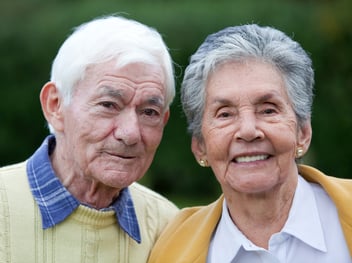Discover what happens during the end stages of life and how to prepare as a caregiver of a terminally ill loved one. Learn about the stages of dying, what to expect as someone starts to die, and when to seek assistance as a caregiver.
Understanding the Stages of Dying
Understanding the stages of dying is essential for both the person who is dying and their loved ones. It allows everyone involved to better prepare for what is to come and to provide the necessary support and care. The stages of dying can vary from person to person, but generally include denial, anger, bargaining, depression, and acceptance.
During the denial stage, the person may refuse to believe that they are dying and may try to maintain a sense of normalcy. This can be a coping mechanism to help them process the reality of their situation.
As the person moves into the anger stage, they may become frustrated, irritable, or resentful. They may lash out at loved ones or express anger towards their circumstances. It's important to remember that this anger is often a result of fear and frustration.
During the bargaining stage, the person may try to make deals or promises in an attempt to prolong their life or avoid death altogether. This can involve religious or spiritual beliefs, such as making promises to a higher power.
Depression is a common stage of the dying process. The person may experience feelings of sadness, hopelessness, and loss. They may withdraw from social interactions and activities they once enjoyed. It's important to provide emotional support and reassurance during this time.
Finally, the acceptance stage is when the person comes to terms with their impending death. They may feel a sense of peace or closure and may focus on making the most of the time they have left. This stage can vary in length and intensity for each individual.
Understanding these stages can help caregivers and loved ones provide appropriate support and anticipate the emotional and psychological needs of the person who is dying. It's important to remember that everyone's experience is unique, and each person may move through the stages at their own pace.
Physical Changes During the Dying Process
Recognizing the signs of impending death can help caregivers and loved ones better prepare and provide the necessary care and support during the final stages of life. While every person's experience may be different, there are common signs that indicate the end is near.
These changes can vary from person to person but may include the following:
- Changes in breathing: The person may experience irregular, shallow, or labored breathing. This is often referred to as the death rattle.
- Changes in circulation: The person's circulation may decrease, leading to cold hands and feet, changes in skin color, and a weakened pulse.
- Fatigue and weakness: The person may become increasingly weak and fatigued as their body's energy stores deplete.
- Changes in appetite and thirst: As the body shuts down, the person may lose interest in food and drink and experience a decrease in appetite and thirst.
- Difficulty swallowing: Swallowing may become difficult, leading to a decreased desire for food and drink.
- Incontinence: The person may lose control over their bladder and bowels as their body weakens.
- Changes in skin: The skin may become pale, cool to the touch, and mottled in appearance.
Emotional and psychological signs can also be present as death approaches. The person may become more withdrawn or less responsive. They may experience confusion, restlessness, or hallucinations. It's important to provide comfort and reassurance during this time.
It's also important to note that not all signs may be present, and the timing and progression of these signs can vary. It's best to consult with a healthcare professional or hospice care provider for guidance and support.
By recognizing the signs of impending death, caregivers and loved ones can ensure the person's comfort and dignity in their final days and provide the necessary physical, emotional, and spiritual support.
Emotional and Psychological Considerations
The end stages of life can bring about a range of emotional and psychological considerations for both the person who is dying and their loved ones. It's important to be aware of these considerations and provide appropriate support and understanding.
For the person who is dying, they may experience a range of emotions, including fear, sadness, anger, and acceptance. They may also experience feelings of guilt or regret about their life or relationships. It's important to create a safe and supportive environment where they feel comfortable expressing their emotions and discussing their concerns.
Loved ones and caregivers may also experience a range of emotions, including grief, sadness, and anxiety. It's important to prioritize self-care and seek support from friends, family, or support groups. Hospice care providers can also offer counseling and resources to help caregivers navigate their own emotional and psychological well-being.
It can be helpful for both the person who is dying and their loved ones to engage in open and honest communication about their feelings, fears, and wishes. This can help create a sense of understanding and provide opportunities for closure and connection.
Additionally, spiritual and cultural beliefs may play a significant role in the emotional and psychological considerations during the end stages of life. It's important to respect and honor these beliefs and provide the necessary support and resources.
By addressing the emotional and psychological considerations, caregivers and loved ones can help create a supportive and compassionate environment for the person who is dying and ensure their emotional well-being is prioritized.
Support and Resources for Caregivers
As a caregiver, it's important to seek support and utilize available resources to navigate the challenges and responsibilities that come with caring for someone who is dying. The following are some support and resources to consider:
- Hospice care: Hospice care providers specialize in end-of-life care and can offer guidance, support, and resources for both the person who is dying and their caregivers. They can provide medical care, emotional support, and assistance with practical matters.
- Support groups: Joining a support group for caregivers can provide an opportunity to connect with others who are going through similar experiences. It can offer a safe space to share feelings, concerns, and tips for coping.
- Respite care: Taking breaks and self-care are essential for caregivers. Respite care services can provide temporary relief by arranging for someone to take over caregiving responsibilities for a period of time. This allows the caregiver to rest and recharge.
- Counseling and therapy: Individual counseling or therapy can be beneficial for caregivers, providing a safe and confidential space to process emotions, manage stress, and develop coping strategies.
- Online resources: There are numerous online resources available for caregivers, including websites, forums, and blogs dedicated to end-of-life care and support. These resources can provide information, advice, and a sense of community.
It's important for caregivers to remember that they are not alone and that seeking support is a sign of strength. By utilizing available resources and reaching out for help, caregivers can better care for themselves and provide the best possible care for their loved ones.
Contact Hospice Care Partners for Support
When caring for someone who is dying, it's important to reach out to hospice care partners for support. Hospice Care Partners specializes in end-of-life care and can offer a range of services and support to ensure the person's comfort, dignity, and emotional well-being.
Hospice Care Partners can assist with pain and symptom management, provide emotional and spiritual support, and offer guidance in navigating the challenges of the dying process. They can also provide resources, such as medical equipment and supplies, and assist with coordinating care and making necessary arrangements.
By contacting Hospice Care Partners, caregivers can access the expertise and support needed to provide the best possible care for their loved one. Hospice care providers understand the unique needs of those who are dying and their caregivers and can offer compassionate and comprehensive care.




